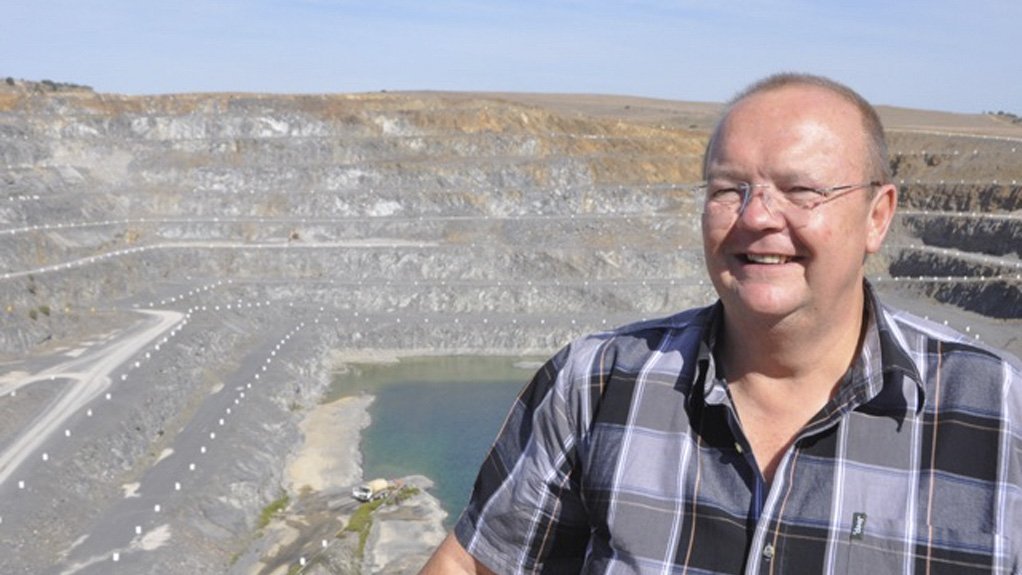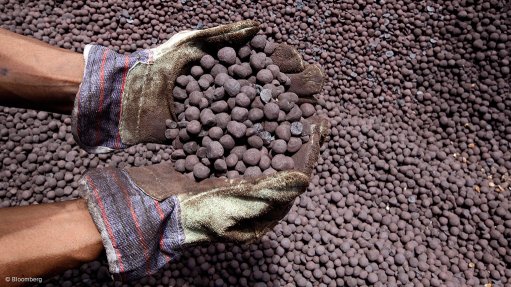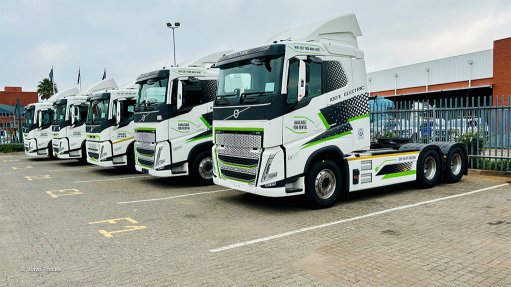Aspasa takes action against dodgy concrete lab test results
The Aggregate and Sand Producers Association of South Africa (Aspasa) has hosted an urgent meeting of its technical committee to address inaccurate and procedurally incorrect laboratory tests that are costing the sand and aggregate industry millions of rands every year.
Aspasa director Nico Pienaar says the association is receiving ever-increasing complaints from its members with readymix concrete subsidiaries about stock returns and, in some cases, even litigation as a result of erroneous lab results conducted on concrete.
In many of the instances, tests used in evidence against members have been compiled by unaccredited laboratories or without a proper paper trail.
Pienaar explains that the problem is being compounded by the closure of the Southern Africa Readymix Association (Sarma), which previously championed the fight against incorrect testing procedures, as well as tests from non-accredited laboratories.
Whether the proliferation was as a result of laboratories taking chances owing to the demise of Sarma, or simply a growing trend is unclear.
“In light of this, Aspasa will step in to address the problem and we plan to take quick action. Laboratories need to be aware of the excessive costs incurred by suppliers when incorrect results are submitted.
“We are on a mission to improve the quality of the products that [our] members produce and are prepared to crack down heavily on laboratories that provide inaccurate results on the products as supplied – especially those who we find to be repeat offenders,” Pienaar states.
He adds that Aspasa will also be addressing noncompliance issues with the South African National Accreditation System (Sanas) and report accredited laboratories that consistently produce suspect results.
"It is worth noting that the national standards surrounding testing of concrete are clear and have been around for a long time. It is just that some laboratories seem to be less committed to the drive for quality testing by abiding by these standard requirements," Pienaar points out.
“The issue that Aspasa will have to push is that commercial laboratories must be held responsible if they supply incorrect results. In such instances, the results may lead to entire consignments of concrete being rejected by a client.
“In cases where concrete has been placed it can lead to litigation against the supplier which costs our members dearly,” notes Aspasa technical committee chairperson Barry Pearce.
He further explains that the onus lies with the supplier to prove the laboratory’s results are wrong and this can be a difficult and lengthy process.
In the meantime, the damage to the reputation of the company suffers and cash flows can become severely constrained, particularly in the current marketplace that is highly competitive with very low margins for profit.
In some instances, these may even lead to the closure of smaller businesses which is a bitter pill for the association to accept, even more so when the results are proven to be incorrect.
In other cases, engineers may become unwilling victims as these incorrect results influence their decision to accept or reject the constructed works. The use of inferior products can have potentially deadly consequences.
“As a result, the issue of engineers accepting incorrect results will have to be urgently addressed as we are finding that engineers do not always have sufficient knowledge on what happens in the laboratories to be able to evaluate the results they obtain.
“Aspasa is very concerned at the lack of accountability in some quarters of the industry where these material failures occur. Those at fault look at every means possible to point a finger in someone else’s direction rather than look to themselves to assist in resolving the issue and admit to their own wrongdoing,” says Pearce.
Comments
Press Office
Announcements
What's On
Subscribe to improve your user experience...
Option 1 (equivalent of R125 a month):
Receive a weekly copy of Creamer Media's Engineering News & Mining Weekly magazine
(print copy for those in South Africa and e-magazine for those outside of South Africa)
Receive daily email newsletters
Access to full search results
Access archive of magazine back copies
Access to Projects in Progress
Access to ONE Research Report of your choice in PDF format
Option 2 (equivalent of R375 a month):
All benefits from Option 1
PLUS
Access to Creamer Media's Research Channel Africa for ALL Research Reports, in PDF format, on various industrial and mining sectors
including Electricity; Water; Energy Transition; Hydrogen; Roads, Rail and Ports; Coal; Gold; Platinum; Battery Metals; etc.
Already a subscriber?
Forgotten your password?
Receive weekly copy of Creamer Media's Engineering News & Mining Weekly magazine (print copy for those in South Africa and e-magazine for those outside of South Africa)
➕
Recieve daily email newsletters
➕
Access to full search results
➕
Access archive of magazine back copies
➕
Access to Projects in Progress
➕
Access to ONE Research Report of your choice in PDF format
RESEARCH CHANNEL AFRICA
R4500 (equivalent of R375 a month)
SUBSCRIBEAll benefits from Option 1
➕
Access to Creamer Media's Research Channel Africa for ALL Research Reports on various industrial and mining sectors, in PDF format, including on:
Electricity
➕
Water
➕
Energy Transition
➕
Hydrogen
➕
Roads, Rail and Ports
➕
Coal
➕
Gold
➕
Platinum
➕
Battery Metals
➕
etc.
Receive all benefits from Option 1 or Option 2 delivered to numerous people at your company
➕
Multiple User names and Passwords for simultaneous log-ins
➕
Intranet integration access to all in your organisation





















